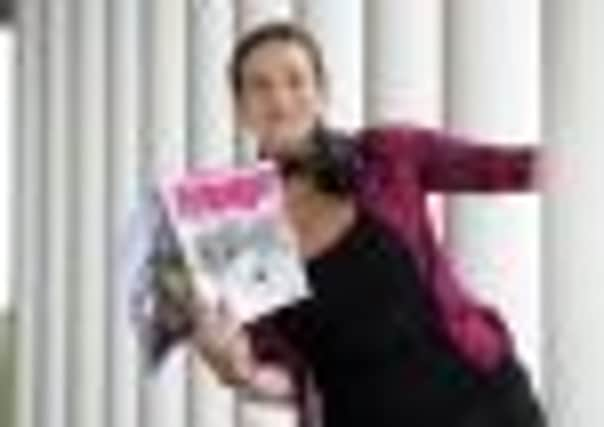Fringe chief says the price of fame is well worth paying for


Days after comedian Stewart Lee triggered anger by claiming that the Fringe was being killed off by over-commercialisation, Kath Mainland insisted the event is in rude health.
And she told a “Fringe Survival Guide” event yesterday that making a profit was not essential to have a successful show when there were so many other potential benefits.
Advertisement
Hide AdAdvertisement
Hide AdShe said there were a whole host of other reasons for companies to bring a show to Edinburgh, including raising their profile within the industry, attracting media attention, seeing other world-class productions, and enjoying the opportunity to learn from other productions and performers.


This year’s Fringe, which boasts more shows than ever before, has seen mounting concern from some promoters and venue managers about acts and companies having to fork out large sums or guarantees to secure a slot at the Fringe.
At the weekend, Nica Burns, director of the Foster’s Edinburgh Comedy Awards, defended the practice, saying it was essentially to help temporary venues balance their books.
Yesterday’s event, inspired by critic Mark Fisher’s acclaimed book on how to survive the Fringe experience, heard from one Australian performer that she and her stage partner had forked out £15,000 to allow them to bring a show to Edinburgh, but considered the cost “an investment.”
However Tess Waters, a first-time Edinburgh performer starring in the show Sexytime at the Underbelly, said she felt the move was already paying off.
“I would definitely consider the cost of coming here and putting the show on as an investment. We are effectively launching ourselves in the UK with this show in Edinburgh.
“We are having to work extremely hard, including flyer-ing for at least two hours a day and trying to do as many guest slots in other shows as we can, but we are already building a really good audience every night.”
Ms Mainland said she would advise theatre groups to come to Edinburgh in advance if possible to sample the Fringe, seek out potential venues and work out what is their best work to put on in the city.
Advertisement
Hide AdAdvertisement
Hide AdShe added: “We always start out by asking groups what they want to achieve when they come here.
“For some people, it is about making money, for others it is the exposure, or the media profile, or simply of being a part of the festival.
“Professional development can be a great thing in Edinburgh as well. You can learn from other artists. With 20,000 performers at the Fringe, sharing the same spaces for three or four weeks, it can also be quite an intense experience.”